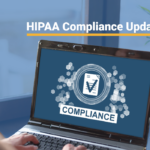Back to School Health Calls: How Nurse Triage Supports Families and Providers

Reviewed and Edited By:
Joe Chow, MD, Adult Medical Director, AccessNurse
As the school year begins, families shift from summer freedom into new routines filled with busy mornings, packed schedules, and, inevitably, health concerns. For healthcare providers, this season brings a predictable surge in patient phone calls—parents with questions about sick children, requests for sports physicals, or urgent concerns about whether their child needs to stay home or see a doctor.
The back-to-school rush can quickly overwhelm even the most efficient practices. Fortunately, nurse triage services can help manage the demand while ensuring families receive safe, timely guidance.
Why Back-to-School Season Drives Higher Call Volume
Every year, healthcare practices experience a spike in calls once children head back to classrooms. Common reasons include:
- Increased exposure to illness. With kids in close contact, colds, flu, strep throat, and other viral infections spread rapidly.
- Vaccination and exam requirements. Parents often need documentation for school entry or sports participation, leading to a wave of calls and appointment requests.
- Allergies and asthma flare-ups. Seasonal changes and environmental triggers can raise questions about management plans.
- Sports-related injuries. From sprains to concussions, active students often need guidance on when to seek medical care.
- Mental health concerns. Anxiety, stress, and adjustment issues are increasingly recognized as part of the back-to-school transition.
These factors combine to create heavy demand on healthcare offices at exactly the time when staff are stretched thin.
The Strain on Healthcare Providers
For physicians advanced practice clinicians, and office staff, the back-to-school season can feel like an avalanche of calls and scheduling requests. Front-office teams are often the first to feel the strain—juggling phone calls, scheduling appointments, and handling in-office patients simultaneously.
When call volume spikes, challenges emerge:
- Longer hold times and frustrated parents.
- Increased risk of errors or missed calls.
- Clinicians interrupted during appointments.
- Families seeking unnecessary urgent care or ER visits out of fear or frustration.
The result is a cycle of stress for both patients and providers that can strain trust and satisfaction.
How Nurse Triage Helps
Partnering with a medical call center during back-to-school season provides relief for both practices and patients. Nurse triage services deliver:
- 24/7 access to clinical guidance. Families receive timely advice, even after hours or on weekends, when concerns often arise.
- Evidence-based protocols. Nurses use proven clinical guidelines to ensure consistent and accurate recommendations.
- Right level of care guidance. Parents learn when home care is sufficient, when to schedule a visit, and when urgent or emergency care is truly needed.
- Reduced unnecessary ER visits. Families avoid unnecessary costs and stress, while providers prevent overcrowding in emergency settings.
- Support for staff. Office teams are freed from nonstop phone duty, enabling them to focus on in-person care.
- Increased patient satisfaction. Parents feel reassured knowing they have access to professional clinical support at any time.
For families, nurse triage provides peace of mind. For practices, it offers a practical way to manage seasonal surges without sacrificing quality of care.
AccessNurse’s Back-to-School Advantage
AccessNurse brings decades of experience in supporting healthcare providers during high-demand periods like back-to-school season. Key advantages include:
- Clinical oversight. Our in-house medical directors, including specialists in pediatrics, ensure our protocols and training reflect the highest standards of care.
- National reach. We serve more than 20,000 providers and practices across the U.S., including health systems, health plans, and Federally Qualified Health Centers (FQHCs).
- Scalability. Whether for a small practice or a large health system, we can absorb seasonal call spikes without delays or dropped calls.
- Customized integration. AccessNurse tailors triage solutions to match the needs and workflows of each client, ensuring seamless communication between our nurses and your care team.
This combination of expertise and flexibility allows providers to meet seasonal demands confidently while keeping patient safety at the center.
Preparing Your Practice for the School Year
While back-to-school challenges are predictable, practices can take proactive steps to stay ahead:
- Plan early. Partner with triage services before the school year begins to ensure your office is ready for the surge.
- Educate families. Encourage parents to use triage services for after-hours guidance or when they’re uncertain about the next steps.
- Coordinate care. Ensure triage nurses have clear communication pathways with your office for seamless follow-up and documentation.
- Position triage as an extension of care. Help families understand that triage nurses are part of the care team, offering trusted support aligned with their provider’s standards.
These steps not only reduce pressure on clinical teams but also reinforce trust between patients and providers.
Final Thoughts
The back-to-school season doesn’t have to mean overwhelming call volume, frustrated staff, and anxious families. With AccessNurse’s nurse triage services, providers can manage seasonal surges effectively while ensuring families get the timely, evidence-based guidance they need.
By preparing ahead and leveraging triage support, practices can enter the school year confident that both their teams and their patients are supported—no matter how busy the phones get.
Ready to strengthen your practice’s back-to-school strategy?
Contact our team today to learn how our triage solutions can support your team and your patients:



